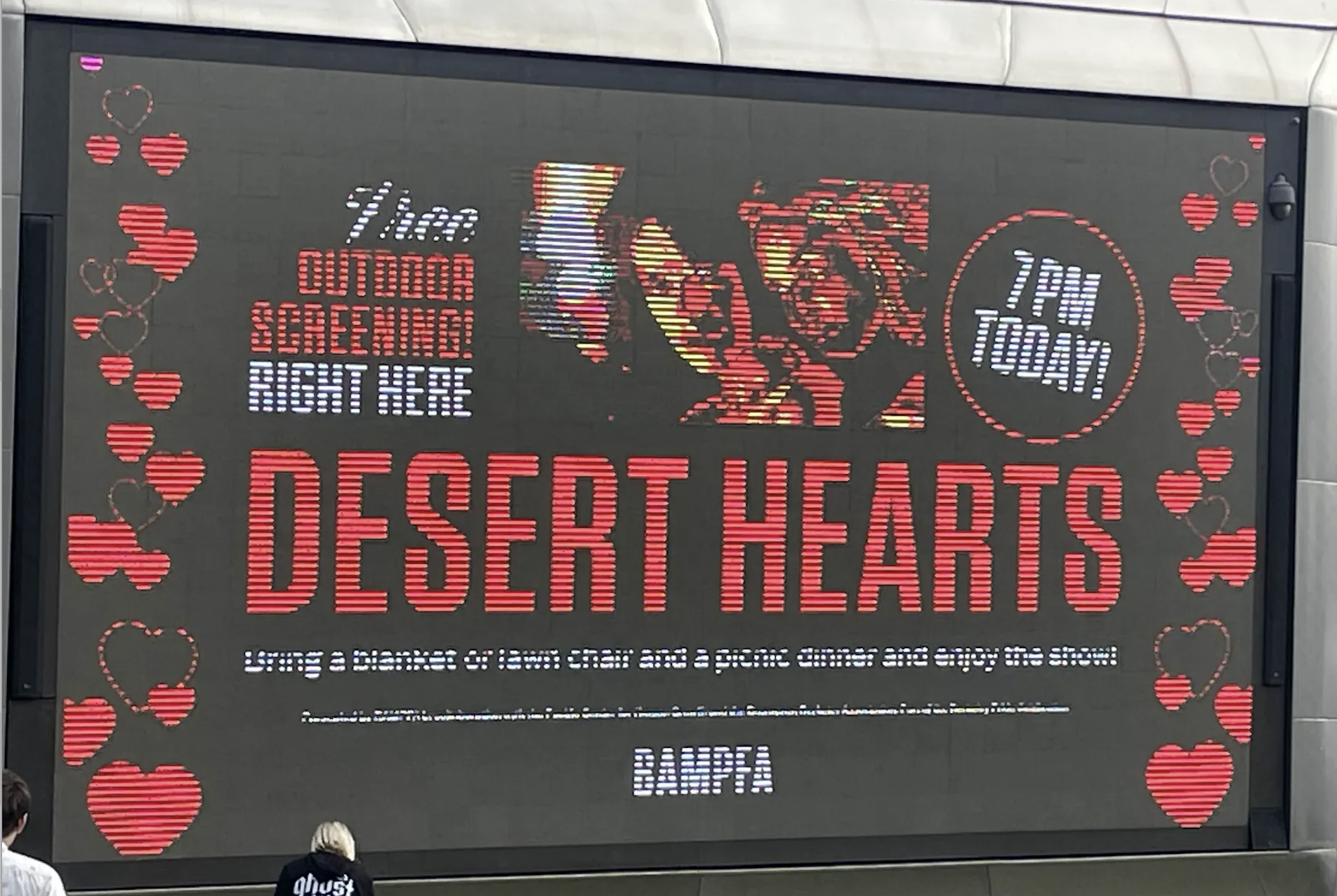You'd be forgiven for confusion on hearing that the Pacific Film Archive was hosting an outdoor screening for Berkeley Pride, since up until this year Berkeley Pride was never a thing. We arrived late, just in time to see tents and barricades being pulled down from the Oxford Street farmer’s market, the last vendors scattering into the evening. The remaining crowd was gathered on the corner of Addison, in front of the giant LED screen that forms the mouth of BAMPFA's steel sandworm.
We'd forgotten to bring a blanket or lawn chair as suggested, but enough chairs had been unfolded on the blocked-off street that we were able to slip in, sit down, and take in the vibe, which--this being an all-ages, dyke-forward crowd--was all about hair. We admired side-shaves, bangs, ducktails, pompadours, neon streaks, gray mohawks; then the Pacific Center took the mike to advertise their new digs on Center Street and pitch their therapy and support groups. Next came BAMPFA program manager Nat Rees to introduce the film. Desert Hearts, a 1985 adaptation of a 1964 novel by Jane Rule, was the first mainstream American film of the kind that we now call "sapphic." "My objective in making a film about lesbians," wrote filmmaker Donna Deitsch, "is not that we are the best of all possible women, but that we are real, sympathetic, beautiful, intelligent human beings capable of good and bad." Deitsch spent years raising funds one investor at a time, and was forced to complete shooting in a breakneck 31 days, on location in Reno. A buttoned-up English professor arrives for a stay at a divorce ranch and meets the proprietor's free-spirited stepdaughter. The predictable, and delightful, follows.
Right from the opening credits, the limits of the LED screen were clear. The resolution was chunky, dim shading turned into colored snow, the train stuttered in its opening shot bringing the professor to town. None of that mattered. The sky darkened, the air turned chilly and the audience snuggled into their dates. Mountains and sagebrush crossed the screen; Patsy Cline and Elvis Presley played. There was knowing laughter at certain lines ("Does it have to unravel so quickly?" "It comes with the territory") and cheers each time the narrative hit a beat: the stepdaughter's first appearance flooring a classic car in reverse gear, the rain-soaked kiss on the shore of Pyramid Lake. The hotel love scene was several degrees steamier than a public screening tends to go, and will probably be used in the near future to deny the city of Berkeley federal funds. The audience was quiet for that part. But as Rees had suggested, the point of the film is that you root for this couple just as you would for any other; and the loudest cheer came last, as they stepped together onto a departing train.
